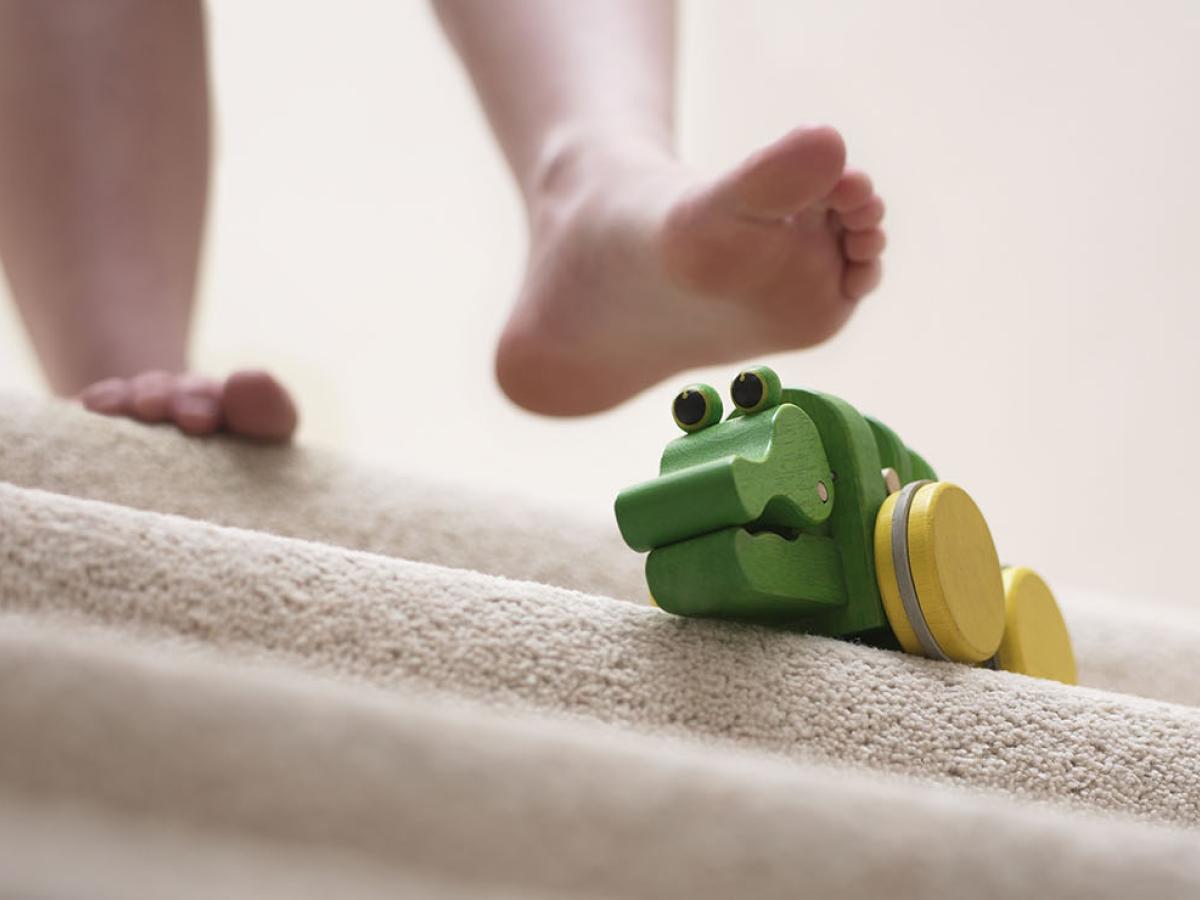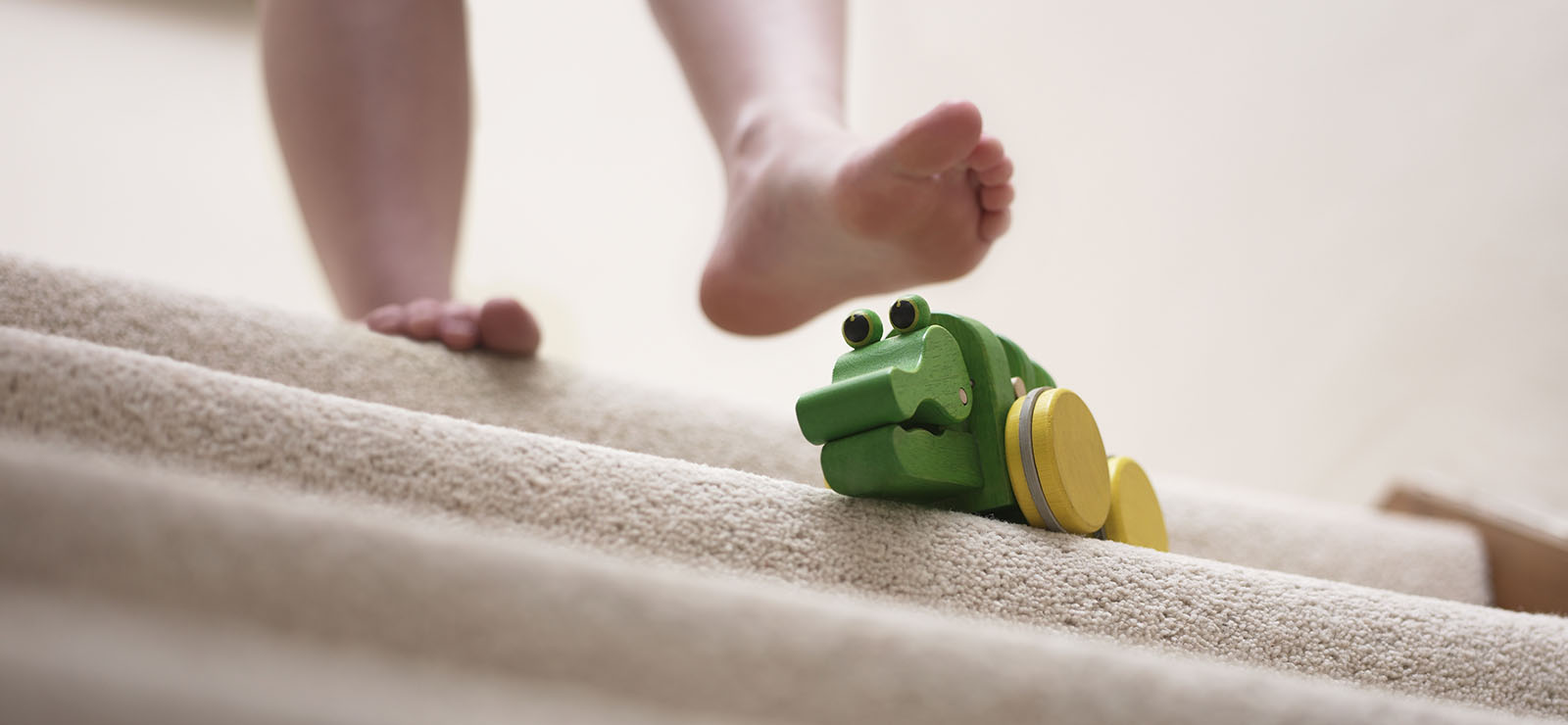November 22, 2023

A concussion is something that results in a (hopefully temporary) loss of brain function. And it doesn’t just happen to football players or someone involved in a car accident. Concussions can occur whenever the brain moves around within the skull, often due to a direct impact to your head or by experiencing whiplash (a back-and-forth motion).
Anyone can get a concussion or mild traumatic brain injury (TBI) any time. Falling is the most common culprit. Miss a step, trip on your kid’s sneaker or slip on some ice and you could find yourself nursing a concussion.

To help us get our concussion facts straight, we spoke with MU Health Care neurologist, Dr. Komal Ashraf. She shared some surprising insights about concussions:
Concussions are tricky because the symptoms are unique to every person and situation.
“Concussion symptoms vary depending on the person’s age, medical history, current health and a host of other reasons,” Dr. Ashraf says. “Even the same symptoms can be different in intensity and timing.”
Most concussion symptoms fit into five categories:
- Headaches and neck pain, including symptoms associated with that pain, such as nausea and sensitivity to light and sound.
- Motor skills, including issues with gross motor skills (balance and spatial awareness), fine motor skills (hand-eye coordination) or vestibular-ocular motor skills (eye movement).
- Mental health, with symptoms that impact judgment, cause anxiety and affect emotional control.
- Cognition, affecting your ability to focus, multitask, make decisions, retain information and recall memories.
- Sleep, causing excessive sleepiness during the acute stage of concussion and later causing insomnia and fatigue.
“After a concussion, we might see any of these symptoms,” Dr. Ashraf says. “And they may show up as entirely new symptoms or worsen existing issues.”
2. Objective Tools Can Help With Concussion Diagnosis
There are no quick and easy, reliable and readily accessible tests used to definitively diagnose a concussion. But some tools provide an objective score based on subjective information, Dr. Ashraf says.
Those tools include:
- Grading scales: These assessments provide a standardized measure of perceived symptoms. They can help measure sleep, ocular (eye) motor skills, nervous system function and gross motor skills. Your doctor can combine those scores with their own observations and evaluation of your condition to help diagnose a concussion and monitor your symptoms as you heal.
- Imaging and electrical studies: CT scans and MRI imaging may provide more information about a brain injury if your symptoms aren’t improving. If you struggle with memory loss, zoning out or experience twitching after a concussion, your doctor may order an EEG (electroencephalogram), which can uncover brainwave abnormalities.
- Thorough evaluations: A variety of exams performed by experts in physical, occupational and speech therapies.
3. Having One Concussion Makes You More Likely to Have Another One Soon After
Concussion symptoms that affect your judgment and motor skills can put you in harm’s way and increase your risk of another concussion. When you suffer a second brain injury and haven’t fully recovered from the first, the symptoms compound and make it harder to heal fully.
Dr. Ashraf explains that having one concussion triples your risk of having another. After a second concussion, you are eight times more likely to have a third.
“It’s so important to get the help you need to heal after a concussion,” Dr. Ashraf says. “If you return to your usual lifestyle without an evaluation or intervention, you could have a second injury. Then it becomes more difficult to recover.”
4. Concussions Can Have a Significant Impact on Mental Health
Concussions commonly affect the frontal lobe — the part of the brain that houses your emotions and judgment. As a result, many people experience pseudobulbar affect (PBA), which involves inappropriate and unexplained surges in emotions that may include:
- Angry outbursts
- Crying spells
- Excessive sadness
- Laughing out of nowhere
These symptoms and sleep issues related to your concussion can cause feelings of isolation, depression and anxiety.
“Concussions have a big impact on mental health that people are often surprised about,” Dr. Ashraf says. “But as long as we identify mental health issues as they arise, we can treat them with medication and other interventions.”
5. Concussions Can Cause Long-Lasting Sleep Issues
Sleep affects all aspects of how we function. So, when a concussion affects your sleep, it makes an impact.
“Inability to sleep well is the number one thing that continues to rear its head after a concussion,” Dr. Ashraf says. “People may have healed in all other ways, but we know that 80% of people who have a concussion end up with some degree of chronic sleep abnormality.”
A concussion affects your sleep acutely (immediately) and chronically (long-term). During the acute stages, you may feel sleepy, like you can’t keep your eyes open. But over time, the issue becomes insomnia — trouble falling asleep and staying asleep. While these sleep issues are new for some people, people with existing sleep issues may find their condition is worse after a concussion.
“When there are baseline sleep issues, it’s easy to miss the connection with a concussion,” Dr. Ashraf says. “But not addressing the escalation of sleep issues after a concussion can be problematic long-term.”
6. “Use It or Lose It” Is the Best Approach to Treating Concussion
You no longer have to rest in a dark, quiet room for weeks to heal a concussion. Quiet rest is still helpful, but experts only recommend it for 24 to 72 hours following a concussion. After that, it’s time to return to physical and cognitive activity — slowly and safely.
“Instead of sitting it out, or what we previously called ‘cocooning,’ we want you to take an approach that is intentional, supervised and monitored,” Dr. Ashraf says. “Staying away from all mental and physical activity makes things worse. Don’t go from zero to 100. Just do a little bit at a time and make modifications and accommodations based on your symptoms.”
7. The Right Care and Treatment Can Help You Heal Faster
Concussions are reversible. A multidisciplinary approach is often the best way to identify and implement the best treatment.
“About 50% of concussions can fully heal within six months,” Dr. Ashraf says. “But you’ll heal sooner with multidisciplinary intervention and take much longer without it.”
Interventions used to help heal a concussion include:
- Physical, occupational or speech therapy: When a concussion impacts your motor skills, you may be more likely to get injured or experience mental health issues. Therapeutic intervention provides exercises that strengthen your motor skills. Language and cognition deficits or changes experienced after a concussion can be improved with speech therapy, while occupational therapy can help a person in job- or lifestyle-specific activities that are impacted after a concussion.
- Medication: Temporary use of drugs to improve headache, mental health and sleep can help you get back to baseline so your brain can heal more efficiently.
The goal is to strengthen areas around the injury to help the injury heal. “If someone has a knee injury, you use therapy to strengthen the areas around the knee so the injured part can heal,” Dr. Ashraf says. “These therapeutic approaches help heal brain injuries the same way.”
Next Steps and Useful Resources
- Learn more about concussion care.
- Have you experienced a concussion during a sports event? Learn about our Sports Medicine Injury Clinic.


